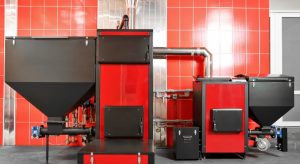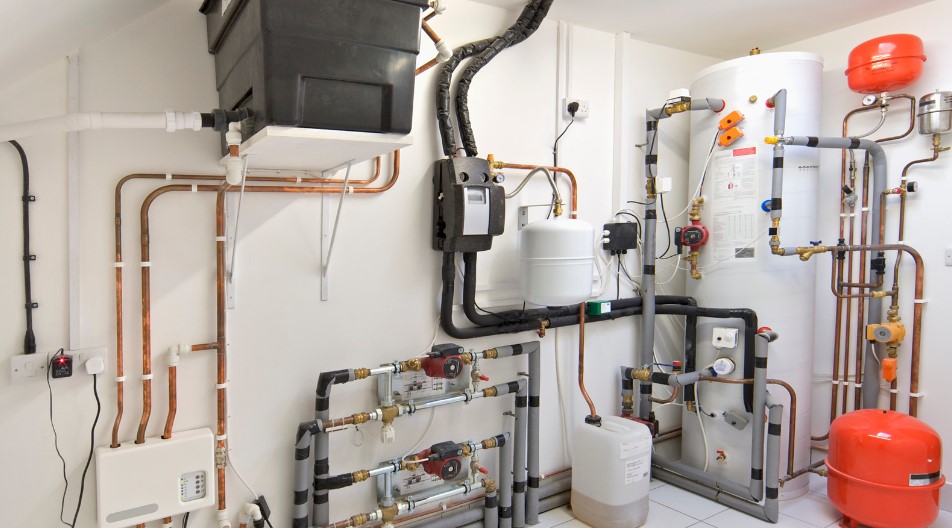Do you own a wood-burning stove or a fireplace in your home? Do you know about the HETAS (Heating Equipment Testing and Approval Scheme) certificate of compliance? If you don’t, you could risk yourself and your home. A HETAS certificate is a legal requirement for anyone who has a stove or fireplace installed, indicating that your heating appliance meets the relevant building regulations for fire and safety compliance.
This blog post will discuss the importance of the HETAS certificate, why you need it, and when you need it. We will also cover how to obtain a HETAS certificate, who can do it, where to find a registered installer, and how much it costs to get certified. Stay tuned to learn everything you need to know to ensure the safety and compliance of your heating appliance.
When is a HETAS Certificate?

A HETAS certificate is an important document verifying that an installation meets the Building Regulations for installing biomass and solid fuel heating systems. It is often a legal requirement for certain situations, such as when selling a home or proving compliance with building regulations. By becoming a HETAS registered installer and issuing a certificate of compliance, you provide customers with peace of mind and invest in your abilities.
HETAS registered installers can self-certify their work and issue a certificate under the Competent Persons Scheme (CPS). All competent businesses must be registered with HETAS to show they meet the required standards. Therefore, a HETAS certificate is vital for peace of mind, legal compliance, and future situations.
Why Do I Need a HETAS Certificate?

If you are thinking of installing a solid fuel or biomass heating system, you may require a HETAS certificate. Although this certificate may not be compulsory while selling a house, it is necessary to contact local authorities and get informed about their regulations. Providing evidence of correct installation may also be requested by solicitors when selling a home. HETAS provides a Competent Person Scheme for installers who can self-certify their work.
Members registered with HETAS are the only ones who can legally install biomass and solid fuel heating systems in England and Wales. HETAS certification ensures that building regulations are adhered to by installers, providing proof of insurance and meeting legal requirements. Failure to comply with these regulations can result in hefty fines. The HETAS certification process is achieved by following their guidance and properly filling out the necessary application form available on their website.
How to Get a HETAS Certificate?

Getting a HETAS certificate is a straightforward process. You must first become a registered HETAS Competent Person Scheme member to obtain a HETAS certificate. You can download and complete the application form from their website, and after providing the necessary paperwork, you’ll be certified in no time. HETAS certificates verify that your work complies with Building Regulations and can be self-certified by registered HETAS installers. HETAS approves biomass and solid fuel heating equipment, fuels, and services.
When is a HETAS Certificate Required?

A HETAS certificate is required when installing solid fuel and wood biomass systems and appliances. In fact, most solid fuel and wood biomass installations are required by law to be reported to the local authority in your region. Installers registered with HETAS can self-certify their work under the Competent Person Scheme.
Having a HETAS certificate can also assure customers that their installation is safe, legal, and compliant. The certificate validates that the installation has met the minimum requirements of Building Regulations, which include the safety of the installation for users and residents, appropriate ventilation, and a safe chimney system. A HETAS certificate is important to ensure that the installation functions as intended and reduces the chances of any operational hazards.
Who Can Obtain a HETAS Certificate?

Individual installers who are registered with HETAS’s Competent Person Scheme (CPS) can self-certify their work. In contrast, others must apply for the certificate by downloading and completing an application from the HETAS™ website. HETAS™ is the only specialised organisation in England and Wales that approves biomass and solid fuel heating appliances, fuels, and services. Using a HETAS™-registered installer ensures the work is up to par and completed safely. Clients who receive a HETAS™ certificate can rest easy knowing that their installation is safe, legal, and compliant with all relevant regulations, giving them peace of mind.
Where to Find a HETAS Registered Installer?

Finding a HETAS registered installer is easy with the HETAS website. These registered traders are trained to UKAS standards and able to self-certify their work, providing homeowners with peace of mind that their new stove or boiler is safe and compliant. Furthermore, they can advise on the appropriate appliances for your home and certify their installation. It’s important to note that a HETAS compliance certificate is usually required for home insurance coverage.
Homeowners who hire HETAS registered installers can obtain a certificate of conformity online for a nominal fee of £17.50+VAT. This document serves as proof that the installation has been carried out in accordance with the latest building regulations and that the equipment used complies with the necessary safety standards. With a HETAS certificate of compliance, homeowners can rest assured that their heating system is safe and compliant with the relevant regulations.
How Much Does It Cost To Get A HETAS Certificate?

The price of a HETAS certificate varies depending on installation requirements. Employing a HETAS-certified specialist costs as little as £24 plus VAT, while other alternatives, like hiring someone from Building Control, can cost up to £300. Almost any homeowner can prepare and send off a copy that the installer has authenticated to obtain a certificate. The cost of a certificate is £17.50+ VAT. Becoming a HETAS registered installer and a Competent Person Scheme (CPS) member would entail filling out an application available on the HETAS website.
While the cost of obtaining a HETAS certificate is a consideration in determining how to accomplish the certification, it is critical to factor in the relevance of the certificate in confirming home insurance and selling a property. To protect yourself and ensure that you have a valid certificate, you are strongly advised to use a HETAS-registered installer.
Conclusion
To sum up, a HETAS certificate of compliance is crucial when installing any solid fuel appliances in your home, ensuring you’re adhering to building regulations and minimizing the risk of fire or carbon monoxide poisoning. It also adds value to your property when selling or renting. You can obtain a HETAS certificate by choosing a qualified HETAS installer to complete the job and certify the work is compliant with regulations. It’s important to get in touch with a certified installer to ensure the job is done safely and efficiently. To learn more about HETAS certificates and their importance, reach out to a registered HETAS installer in your area, and they will guide you through the process.









Leave feedback about this